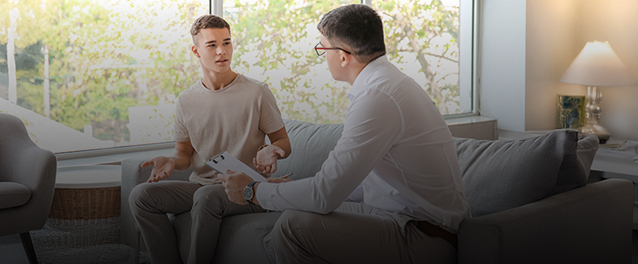Few things are more distressing for a parent than receiving a call informing them that their child has been charged with a crime. That said, no matter your child’s age, facing criminal charges can have serious consequences that impact their future. Understanding how New York State law treats juveniles and what steps you should take to protect your child is crucial. Continue reading and reach out to a knowledgeable Nassau County juvenile defense lawyer from The R.M.L. Law Firm, PLLC to learn more about what to do if your child is charged with a crime. Here are some of the questions you may have:
How Does New York State Handle Juvenile Offenses?
New York separates minors into different categories based on their age and the seriousness of the alleged offense:
- Ages 7–12: Children under 13 are not criminally responsible and their cases are usually handled by social services or diverted to programs focused on intervention.
- Ages 13–15: These teens are typically treated as juvenile delinquents in Family Court. However, if they’re charged with serious crimes like armed robbery, rape, or homicide, they may be classified as juvenile offenders and prosecuted in Criminal Court.
- Ages 16–17: Thanks to the Raise the Age law, non-violent cases for 16- and 17-year-olds start in the Youth Part of Criminal Court. Many of these are transferred to Family Court, where the focus is on rehabilitation. Violent felony cases may remain in the Youth Part.
Example: A 17-year-old from Garden City is caught shoplifting from Roosevelt Field Mall. Under current law, their case may start in the Youth Part, but with a strong defense, it could be moved to Family Court for diversion or community service.
Common Juvenile Charges on Long Island
Some charges we frequently see involving minors include:
- Shoplifting or petit larceny
- Assault or fighting at school
- Vandalism or graffiti
- Trespassing or criminal mischief
- Possession of marijuana or vaping THC products
- Weapon possession (including school-related incidents)
- Cyberbullying or harassment via social media
What Legal Protections Are Available for Minors?
When a minor is charged with a crime, they are afforded certain legal protections that adults do not receive. Juveniles in Family Court do not have criminal records, as cases are sealed and classified as delinquency matters rather than criminal offenses. This is meant to ensure that young individuals have the opportunity for rehabilitation rather than severe punishment.
For 16- and 17-year-olds charged with misdemeanors or non-violent felonies, their cases often begin in the Youth Part of the court system. Many of these cases are transferred to Family Court, where judges focus on rehabilitation rather than incarceration. If a case remains in the Youth Part of the criminal court, the minor is still granted protections, such as being held in special juvenile facilities rather than adult jails.
Importantly, legal representation is essential in these situations; a skilled criminal defense attorney can argue for a case to be handled in Family Court rather than criminal court, seek alternative sentencing options, and work to minimize long-term consequences for the child.
What Steps Should Parents Take if Their Child is Charged With a Crime?
The moment you learn that your child has been arrested, you must remain calm and take immediate action. Here are the steps you should take:
- Do Not Allow Your Child to Speak Without a Lawyer: Anything they say can be used against them, even if they believe they are explaining their side of the story.
- Contact a Long Island Juvenile Defense Attorney Immediately: Time matters. A lawyer experienced in juvenile law and local courtroom procedures can push for the best possible outcome and guide you through the legal process.
- Understand the Charges and Legal Process: Work with your attorney to determine whether the case will be heard in Family Court, Youth Part, or criminal court.
- Support Your Child: Facing charges can be an emotionally taxing experience for a minor. Offer them reassurance and guidance while working toward the best resolution.
Every parent wants to protect their child, especially when they make mistakes. New York State law provides avenues for rehabilitation, but you shouldn’t go through the system without experienced legal representation in your corner. If your child has been charged with a crime in Nassau or Suffolk County, securing the help of a knowledgeable attorney is the best way to protect their future.
Contact The R.M.L. Law Firm, PLLC for a free initial consultation today.


